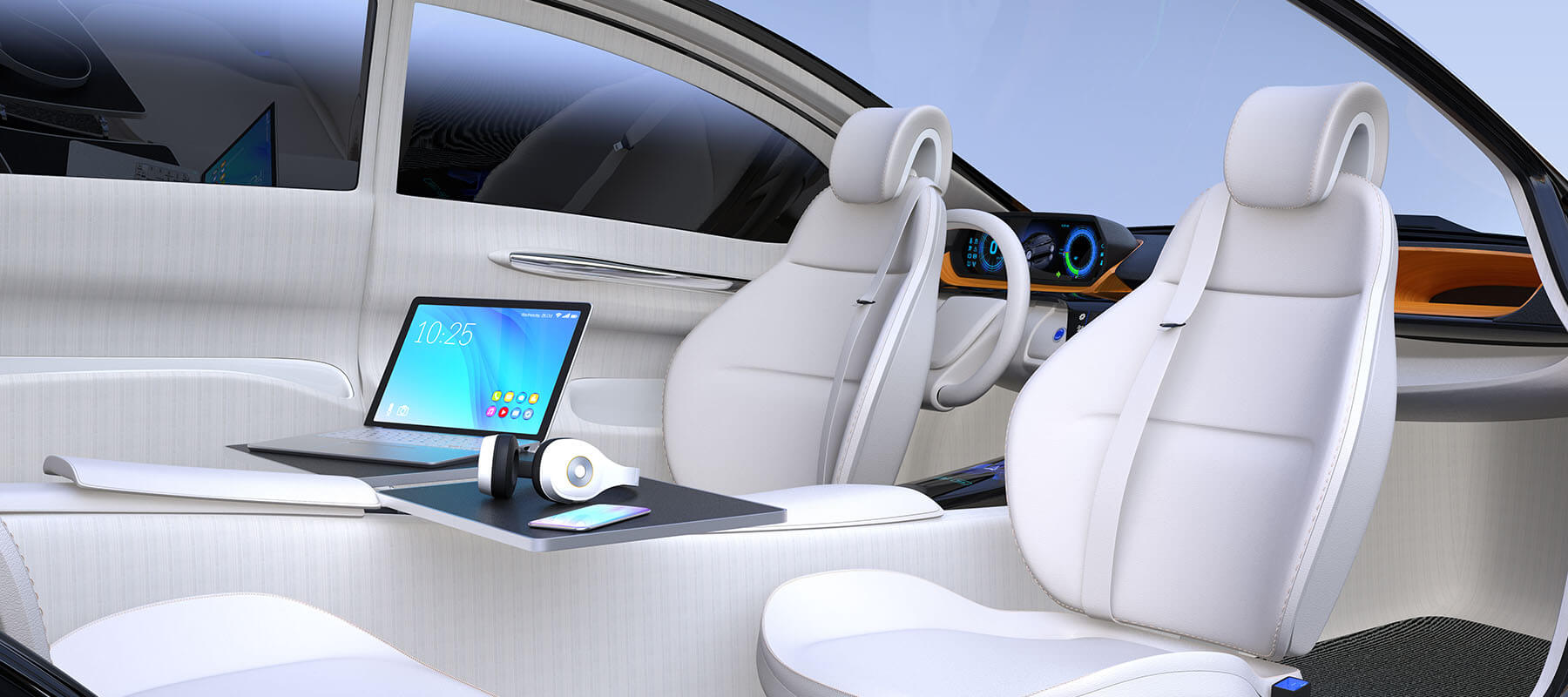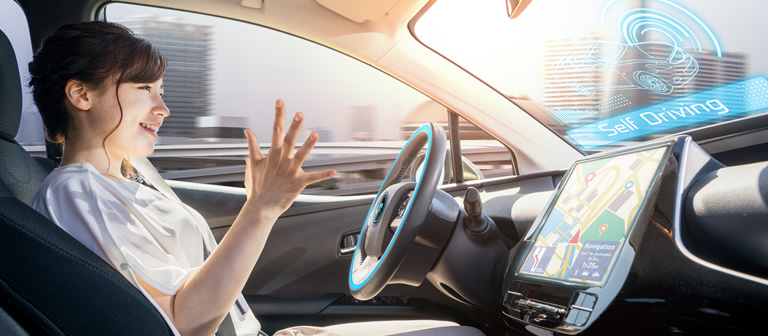In an era where technology is advancing at an unprecedented pace, the automotive industry is undergoing a transformation that is set to revolutionize how we perceive and interact with vehicles. The concept of self-driving cars, once relegated to the realm of science fiction, is now a tangible reality that promises to reshape transportation, safety, and urban planning. This article delves into the exciting world of self-driving cars, exploring their potential impact on our daily lives and the evolution of the automotive landscape.
Driving Toward Autonomy
From Fiction to Reality
The journey toward self-driving cars began as a distant dream depicted in movies and books. However, rapid advancements in artificial intelligence (AI), machine learning, and sensor technology have brought this dream closer to reality. Engineers and tech giants alike are collaborating to develop vehicles capable of navigating roads without human intervention.
Levels of Automation
Self-driving cars operate on a spectrum of automation, categorized into levels ranging from 0 to 5. At Level 0, the human driver is in complete control, while at Level 5, the vehicle can manage all aspects of driving without human input. The gradual progression through these levels reflects the evolution of autonomous technology.
Benefits of self-driving cars
- Safety: One of the biggest potential benefits of self-driving cars is that they could significantly reduce traffic accidents. According to the National Highway Traffic Safety Administration (NHTSA), human error is a factor in 94% of all car accidents. Self-driving cars, on the other hand, would be programmed to drive safely and avoid making mistakes.
- Efficiency: Self-driving cars could also make our roads more efficient. They could be programmed to drive in a way that minimizes traffic congestion and fuel consumption. This could lead to significant savings in time and money.
- Accessibility: Self-driving cars could also make transportation more accessible to people who are unable to drive themselves, such as the elderly and people with disabilities. This could help to improve their quality of life and give them more freedom to get around.
Transforming Transportation

Enhancing Safety
One of the most promising aspects of self-driving cars is their potential to reduce accidents caused by human error. Advanced sensors and real-time data analysis enable vehicles to anticipate and respond to potential hazards, leading to safer roads and fewer collisions.
Redefining Commuting
Self-driving cars have the potential to transform commuting into a productive and relaxing experience. Instead of being stuck behind the wheel, commuters can utilize travel time for work, leisure, or rest. This shift could also alleviate traffic congestion and reduce stress associated with daily commutes.
Impact on Industries
Disrupting Traditional Models
The rise of self-driving cars has the potential to disrupt traditional business models in the automotive industry. As car ownership shifts toward ride-sharing and subscription services, manufacturers and dealerships may need to adapt their strategies to remain relevant. waymo self driving car
Urban Planning and Infrastructure
The integration of self-driving cars could reshape urban planning and infrastructure. Parking spaces might become obsolete as self-driving cars can drop passengers off and continue to their next destination, optimizing urban space and reducing congestion.
Addressing Challenges

Ethical and Legal Considerations
The introduction of self-driving cars raises ethical dilemmas and legal challenges. waymo self driving car. Decisions regarding how vehicles prioritize different lives in potential accidents, as well as the determination of liability in case of accidents, require careful consideration.
Technical and Technological Hurdles
Despite significant progress, self-driving cars face technical obstacles. Developing AI systems capable of handling complex real-world scenarios and ensuring consistent communication between vehicles and infrastructure remain challenges that need to be overcome.
Challenges of self-driving cars
- Technology: One of the biggest challenges facing self-driving cars is the technology itself. The technology is still in its early stages of development, and there are many challenges that need to be overcome before self-driving cars can be widely adopted. These challenges include developing reliable sensors and software that can accurately perceive the environment, developing algorithms that can make safe and efficient decisions in real time, and ensuring that self-driving cars can safely interact with other vehicles and pedestrians.
- Regulation: Another challenge facing self-driving cars is regulation. In order to be deployed on public roads, self-driving cars will need to meet strict safety standards. They will also need to be approved by regulators in each country. This process could take many years.
- Public acceptance: Finally, there is the challenge of public acceptance. Some people are hesitant to trust self-driving cars, and they may be reluctant to give up control of their vehicles. This could slow down the adoption of self-driving cars.
The Road Ahead
Collaboration and Innovation
The future of self-driving cars hinges on collaborative efforts across industries. Automakers, technology companies, regulators, and policymakers must work together to establish safety standards, regulations, and infrastructure that support the widespread adoption of self-driving technology.
Continual Evolution
As self-driving technology continues to advance, we can expect a gradual transition toward autonomous vehicles becoming a common sight on our roads. This transition will be marked by incremental updates, improved safety features, and increasing public acceptance.
Conclusion
The future of self-driving cars holds immense promise for revolutionizing transportation, safety, and urban living. waymo self driving car. From enhancing road safety and redefining commuting experiences to transforming entire industries, the impact of self-driving cars is profound. While challenges remain, collaboration, innovation, and ongoing development will pave the way for a future where self-driving cars become an integral part of our lives.
As we journey toward this new era of mobility, it’s essential to remain open to the potential benefits and challenges that self-driving cars bring. waymo self driving car. The road ahead may be paved with uncertainties, but the destination promises a transportation landscape that is safer, more efficient, and filled with possibilities.
Facebook: https://www.facebook.com/pastfutur.official
Instagram: https://www.instagram.com/pastfutur.official/
Telegram: https://t.me/pastfutur_official


